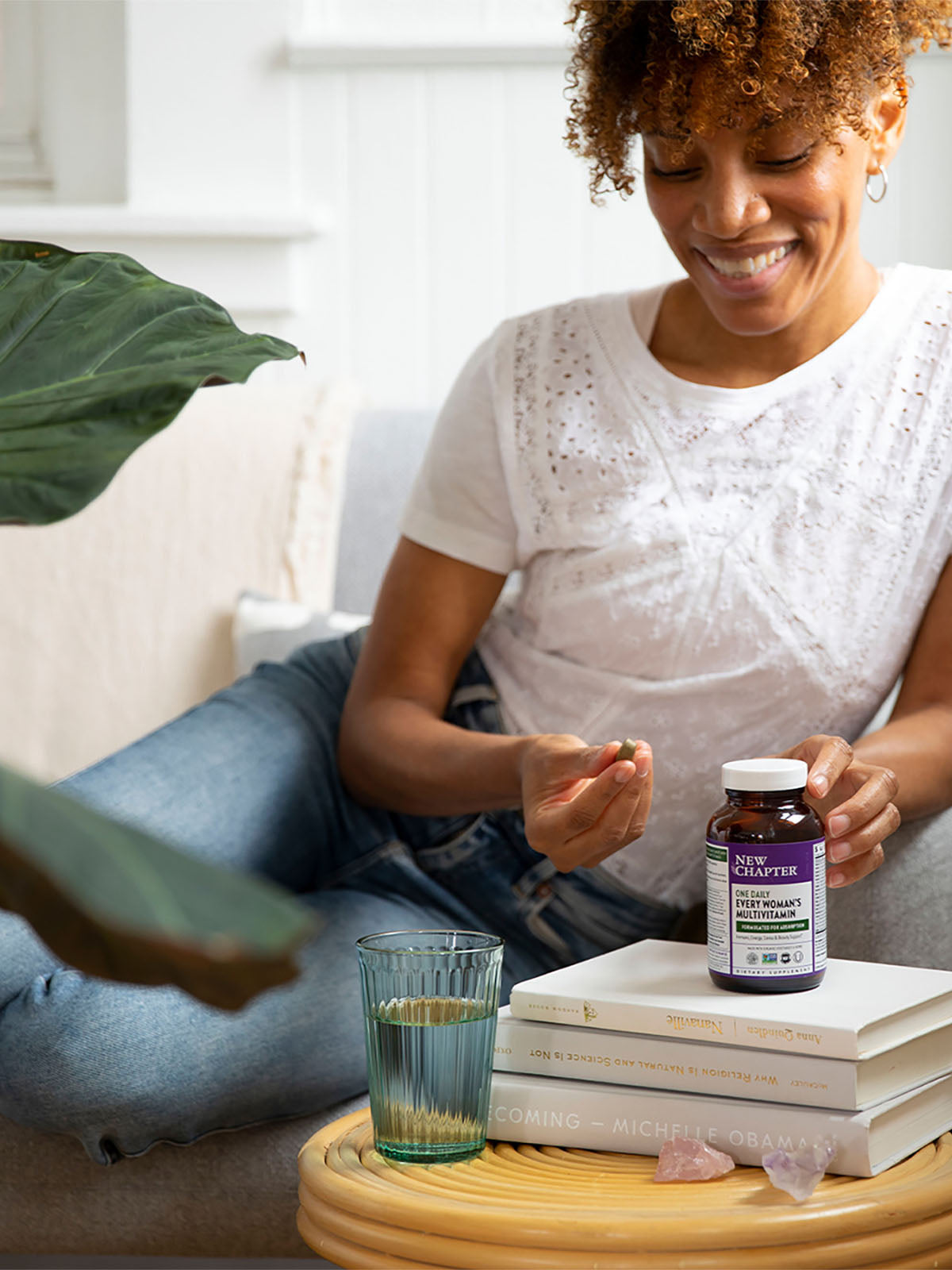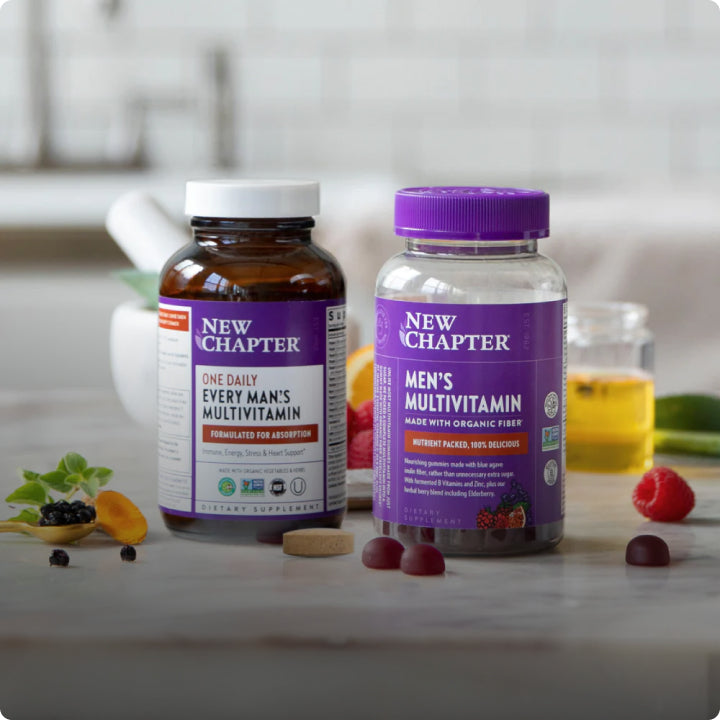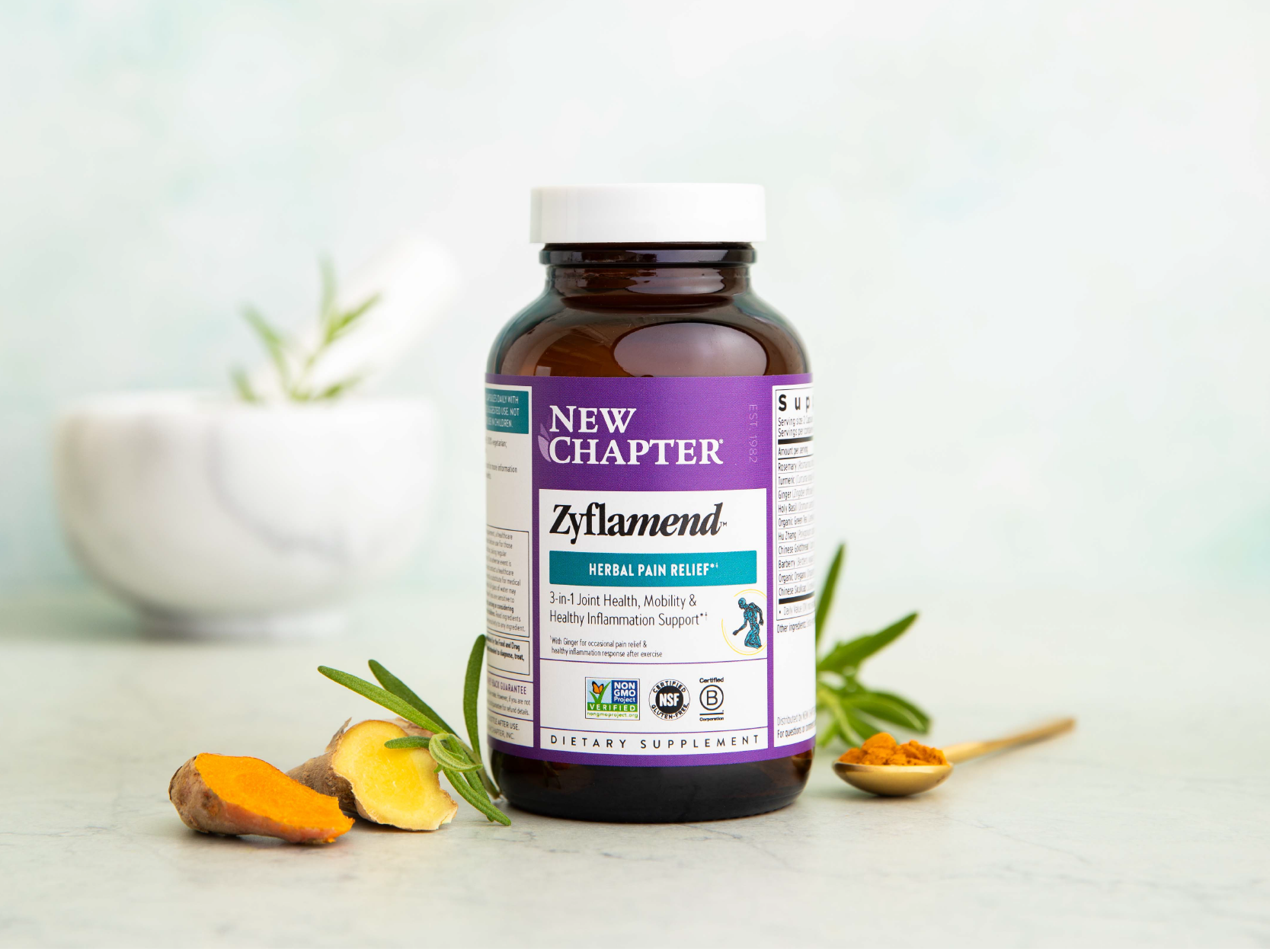As we head into the holidays, it’s normal to have some mixed feelings. Maybe you’re feeling joy about getting to spend time with loved ones. Maybe there’s some stress happening that feels like a knot in your stomach. Can the world of supplements help you handle the hustle and bustle of the holiday season? Is there a strategy to help you fight your holiday foe, the buffet table? Let’s explore some holiday tips on how to support gut health and mental health this season.
Holiday Food
The holidays usher in the familiar tastes and smells of baked goods and multi-course meals surrounded by family and friends. We often take comfort in the holiday foods that we know and love, from extra helpings of main dishes to sweet pies and cookies to ALL the gravy.
While comforting, these holiday foods may not be good fuel to support our overall health goals. Our daily food choices can really impact how we feel both mentally and physically and can also affect our immune system. While we can say, “What the heck!” “Why not?,” and “I earned this” sometimes, we should pay attention to our bodies and learn how different foods make us feel. (Sugar coma after those sweet potatoes topped with baby marshmallows at Thanksgiving, anyone?)
What is Gut Health?
Digestive and gut health involve the effective breakdown of food into smaller building blocks your body can use in different ways. Food and drink get digested and broken into macronutrients (fats, proteins, and carbohydrates) and micronutrients (such as vitamins and minerals). Getting nutrition from your food is essential for supporting the many systems of your body. From the mouth through the esophagus, stomach, and intestines, your digestive system works to unlock and transport nourishment smoothly. And it’s important to know that your digestive tract is its own living ecosystem. Your gut is home to a unique combination of trillions of beneficial bacteria, yeast, and other microorganisms. Together, they make up what’s called your gut microbiome. Microbiome health has been linked to many other aspects of health, including mood and immune activity.
Gut Health and Mental Health: How They Affect Each Other
A survey showed that 61% of Americans have experienced gastrointestinal (GI) discomfort in the past week.Taking steps to care for your GI health is important because digestive health can affect every system in your body. While many people know that inflammation from allergies or food reactions can cause discomfort, they may not know that digestive health is integral to overall mood and general health.
Tucked away in your digestive system is the ENS, otherwise known as the enteric nervous system. This system is a web of neurons embedded in the walls of your
gastrointestinal system. In fact, there are so many nerve endings in the GI tract that it’s sometimes called your “second brain.” The nerve centers in the gut and in the brain communicate with each other constantly. If you’ve ever gotten a nervous stomach, you have experienced how your brain and gut are directly connected.
Also, scientists estimate that the gut is where
90% of serotonin, the feel-good hormone, is made. In short, a healthy gut can mean a happy you.
How Gut Health Supports Immune Defenses
When you feel stressed, it can take a toll on your digestive system AND your immune system. Stress signals our “fight or flight” response. This is a natural survival mechanism that spikes stress hormones when the body feels threatened. While this ancient instinct can be handy preparation for a leopard attack, the body can also feel triggered in other situations, such as during Black Friday shopping, an uncomfortable interaction with someone, or a big deadline looming at work. While stress can be beneficial to help power you through tough moments, having stress last for days or months at a time may lead to long-term issues like a weakened immune system.
How does this happen? Your immune system is taxed and engaged with trying to help your body to calm down from the stress hormones you are producing in large quantities. This works your immune system too hard and it eventually tires out and becomes less effective. Supporting your stress levels with adaptogenic herbs like Holy Basil can
help your body adjust to stress levels and also support your immune system.
Probiotics, the good bacteria that support your body’s immune system, can support digestive health as well. These active bacteria have numerous benefits, like supporting healthy digestion and building up a healthy microbiome.
How to Improve Gut Health Naturally
Research has found that your microbiome can shift depending on what you eat. One study found that subjects who switched from a plant-based diet to an animal-based diet had a microbiome shift within 24 hours, as the body’s inner profile of bacteria responded to the change in food intake. As we head into the holiday season, there’s a lot you can do to support your body’s natural ability to digest and deal with dietary splurges. Here are 3 favorite tips for supporting a healthy microbiome and digestive system.
TIP 1: Consume the Best Foods for Gut Health
Fermented Foods
Some of the best foods for inner wellness are fermented. Fermentation is when food is transformed through the action of friendly, living microorganisms. Think sauerkraut, kimchi, tempeh, miso—most food traditions include some kind of fermentation or culturing. Fermented foods have many benefits! One is that they are pre-broken down to be digested and assimilated easily by the body. A great example is yogurt. A systematic review of research on lactose digestion found that fermented milk products like yogurt are more easily tolerated than regular, non-fermented milk.
Kombucha
Kombucha is a fermented tea beverage made from sugar, yeast, bacteria, and tea. Through fermentation, kombucha has a natural probiotic content. Kombucha has historical roots that start in northeast China, once known as Manchuria. This beverage was popular back in 220 BCE for its detoxifying and energizing properties.
Cruciferous Vegetables
Vegetables of the Brassicaceae family include broccoli, cauliflower, kale, Brussels sprouts, and bok choy. These leafy green vegetables contain insoluble fiber, which is great for stimulating the digestive tract and helping to support regular bowel movements. Cruciferous vegetables also naturally contain magnesium, which also supports digestive health.
TIP 2: Stay Well Hydrated
Your digestive system always needs one crucial ingredient to do its job of processing and moving nutrition through the body: Water. Keep yourself well-hydrated every day by drinking plenty of water! While many follow a rule of drinking 8 glasses a day, some bodies may need more than that (especially if you live in a hot climate, are physically active, or are breastfeeding). Water also helps your body to maintain blood volume, motor control, cognitive function, and temperature.
In general, the
National Academy of Medicine recommends that healthy adult males drink 13 cups of water a day (104 ounces or ~3 liters) and women drink 9 cups a day (72 ounces or ~2.2 liters). We love these ways to remember our water:
- Make it yummy. Try adding cucumber slices, crushed mint, sliced citrus or crushed berries.
- Carry it everywhere. Find reusable, sustainable containers that you love and take them on the road. Try a S’well® bottle that keeps beverages cold or hot for hours!
- Coffee or tea can count! It used to be believed that caffeinated beverages were dehydrating, but data suggests that this is not necessarily the case. These drinks can contribute to water intake.
TIP 3: Add the Best Supplements for Gut Health
Probiotics for a Healthy Gut
Strain-specific probiotics are a great inclusion in your wellness routine. Check out New Chapter’s Probiotic All-Flora™ probiotic supplement that delivers 10 billion CFU (colony forming units) of probiotics in just one capsule a day. An herbal digestive blend with fermented Aloe makes this a perfect probiotic formula for keeping your microbiome happy during the holiday season.
Taking Fiber for Gut Health
Making sure you get enough dietary fiber is another way to support a healthy, happy digestive system. Fiber is super important, as it not only provides bulk for forming stool but also fuels the natural good bacteria in your microbiome. The Dietary Guidelines for Americans recommend that adults get around 22-34 grams of fiber a day (specific amount depends on body weight). That’s the equivalent of around 9 cups of broccoli, and most people aren’t getting that much fiber in a day! It can help to take a daily fiber supplement like New Chapter’s Organic Fiber Gummies that provide up to 8 grams of vegan, plant-based fiber a day and keep your routine going smoothly.
Using Ginger for Gut Health
Feeling queasy? Ginger is great for nausea during pregnancy or when in motion, but it’s also helpful for supporting the growth of beneficial intestinal microorganisms, which are vital for intestinal health.* New Chapter’s Ginger Force™ incorporates the power of supercritical Ginger, gently extracted with CO2 to deliver powerful digestive support.*
Fermented Vitamins (Multis)
New Chapter’s multivitamins have the benefit of being fermented and formulated for absorption. These expertly crafted multivitamins support multiple foundational benefits including healthy immune function.* They can also help meet your daily need for micronutrients during the winter season, when you may need certain nutrients more. For example, check out One Daily Multivitamin + Immunity that’s enhanced with high levels of Vitamin C, D3, and Zinc for immune support, plus clinical-strength Holy Basil that helps build the immune system.*
Wellness for the Holiday Season
New Chapter wishes you the best in supporting yourself and your loved ones during the holiday season and every day. Looking for more healthy holiday tips? We’ve got you covered with posts on responsible gifting and beating winter blues. We’re here for you with revolutionary natural wellness supplements formulated for your body to really, truly absorb. We call that wellness, well done.






